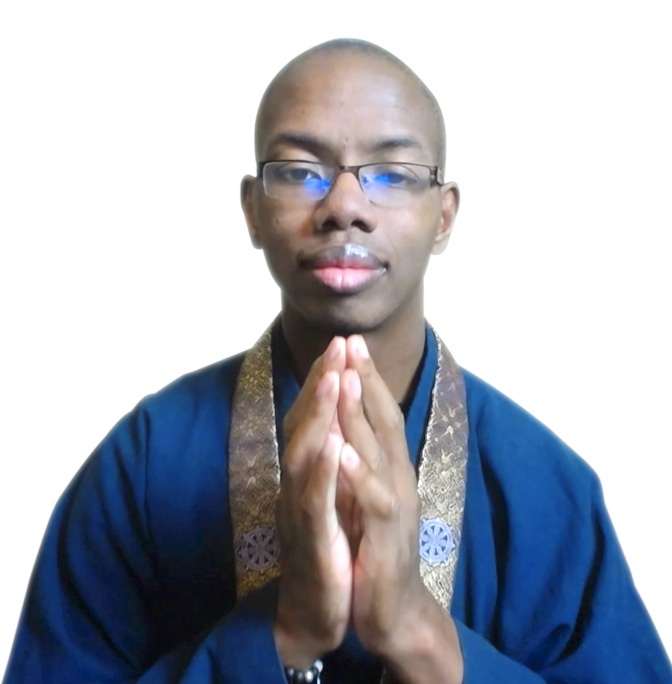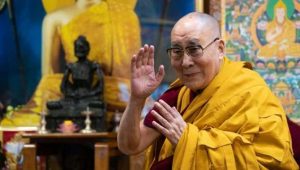
As I write this, there’s a steady downpour of rain outside. It has been raining for three days and, per the weather report, it will be another two days before we see sunlight again. In the meantime, the garden won’t lack for moisture, and my animals will stay dry in their enclosures.
For my part, I spend a few minutes each day grumbling about the chores I want to get done, but can’t. I try to guess the next time the grass will be dry enough for me to mow, and I stare mournfully at the garden paths that need another layer of mulch to keep the weeds at bay.
Once my bellyaching is over, I make a cup of tea and I sit on the porch. I listen to the wind rustling in the trees. I watch their leaves shake as raindrops explode against them. And I marvel at the fact that I’m dry and warm even as I sit in a veritable ocean of water.
There is a wonderful dichotomy in this moment. The rain is a source of suffering, a road block that’s stopping me from completing projects on the homestead. On the other hand, the rain is a source of pleasure. It nourishes my garden, provides entertainment, and when paired with a cup of tea, it arouses a warm, cozy feeling in my chest.
That warm and cozy feeling, which comes dangerously close to contentment, is possible because I’ve found a good refuge from the rain. Sitting on my porch and drinking my tea provides a healthy coping mechanism in the face of an unsatisfactory life event.
There’s a phrase in Buddhism that perfectly describes this moment. It’s called “taking refuge.” Dictionary.com defines refuge as “shelter or protection from danger,” and the historical Buddha lived in a world filled with danger.
At any moment, people were only one crop failure away from starvation. Deadly disease ran rampant, and there was little recourse if a powerful noble abused the residents of their district. It’s no wonder that the first noble truth of Buddhism states: “Life is suffering.” Hardship was ubiquitous to daily life back then.
The Buddha taught his students to respond to this suffering by taking refuge in the Buddha, the Dharma, and the Sangha. But before we go too deep into what this means, it must be understood that human beings are always taking refuge.
Every moment of every day we experience some sort of dissatisfaction. Sometimes it’s major; we don’t have enough food to eat or a loved one passes away. Sometimes it’s minor; our favorite TV show is canceled or our favorite sports team loses a game.
And how we respond in these moments is important. If we take refuge in something healthy and life-affirming, we’re able to ease the pain we’re experiencing or eliminate it all together. However, if we take refuge in something unwholesome, then we make our suffering worse.
The person who has a hard day at work and responds by reading a book when they get home, taking refuge in the written word, will fare much better than the person who responds by spending an evening at the bar. The former will engage their mind in a healthy, life-affirming activity, while the latter will end up with a hangover and an expensive bar tab!
The Buddha understood the importance of taking refuge in the right things. That’s why he taught his students to take refuge in the Buddha, the Dharma, and the Sangha.
For modern practitioners, we take refuge in the Buddha by following his example—striving to end suffering for ourselves and others whenever possible. We take refuge in the Dharma by obeying the Buddhist teaching on morality and study the scriptures that have been passed down for generations. And we take refuge in the Sangha by embracing our community of fellow Buddhist practitioners. We can do this by being active at our local Buddhist temple.
When we take refuge in the Triple Gem of the Buddha, the Dharma, and the Sangha, we respond to the suffering in a healthy, life-affirming way, which ends suffering for ourselves and others. Each time we do this, our minds become a little bit clearer, and we begin to find other things in life that are also good places of refuge.
Maybe we determine that the best way to deal with stressful day at work is a workout at the gym. Maybe we realize that instead of laying on the horn when people cut us off in traffic, it’s better to turn on our favorite radio station. And maybe we decide the best thing to do on gray, rainy days is to sit on the porch with a hot cup of tea.
Through the practice of Buddhism, we realize that while the suffering of life is endless, the refuges from that suffering are also endless. We just need to train our minds, so we know where to find them.
Namu Amida Butsu
Related features from BDG
Taking Refuge
Within Chaos, There Is a Refuge for Meditation
Book Review: Chenxing Han’s Be the Refuge
Buddhistdoor View: Seeking Refuge in a Post-COVID World
Buddhistdoor View: We Are All Seeking Refuge














